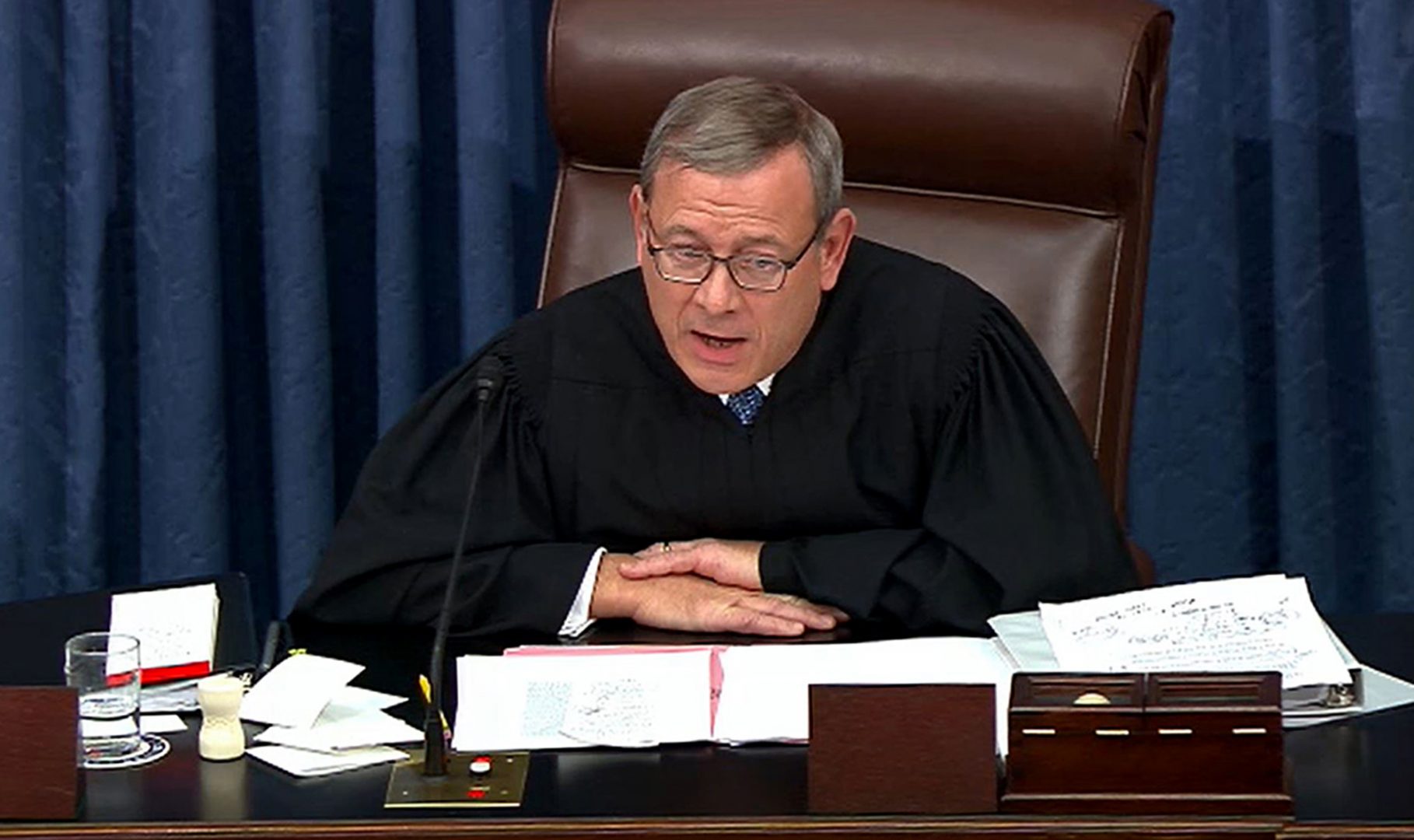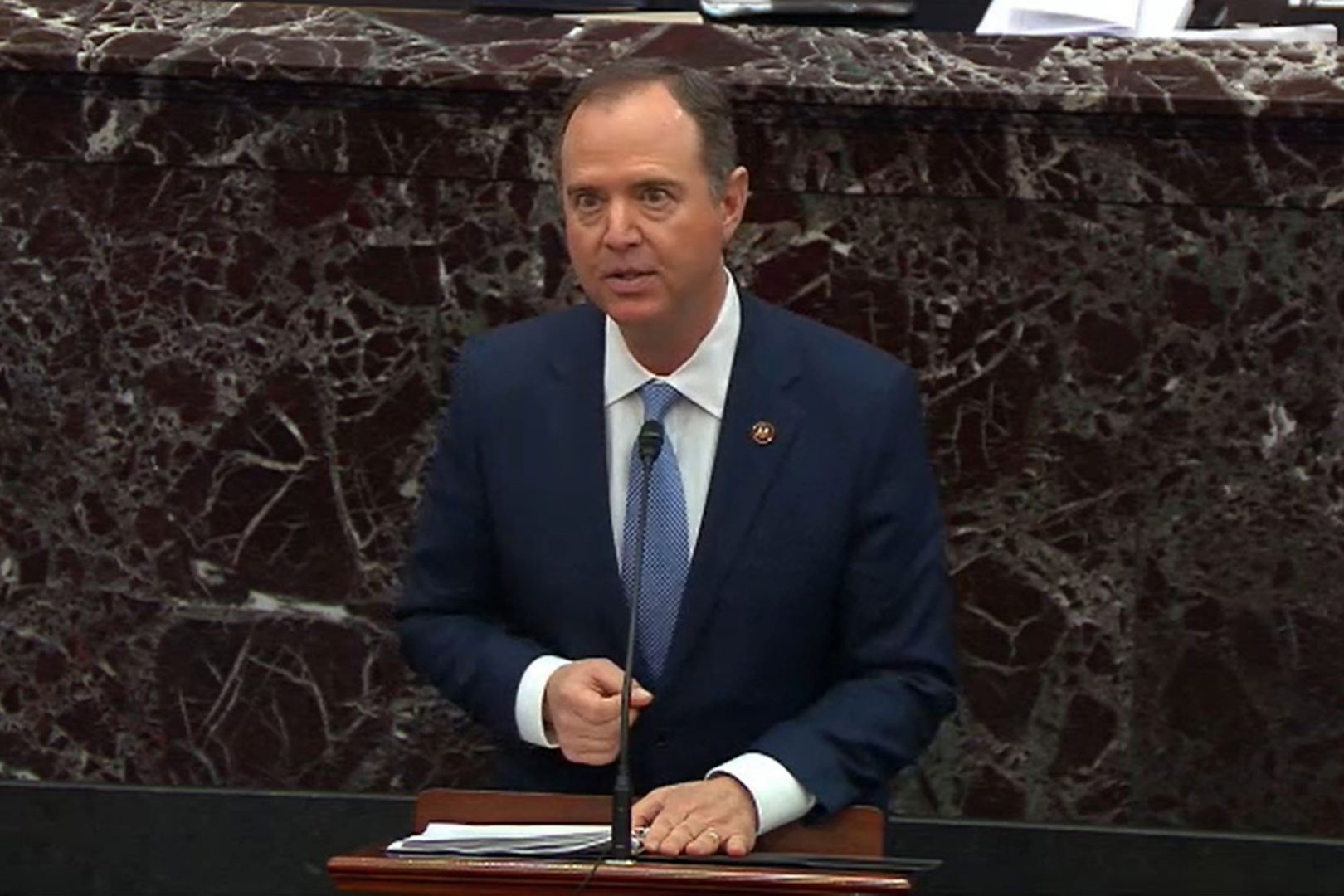After a delay in the sending of the articles of impeachment, the Senate impeachment trial of President Donald Trump began with opening arguments on Jan. 22. The trial is expected to last less than a month, with the trial possibly concluding by Friday, Jan. 31, according to Politico.
Trump was formally impeached by the House of Representatives on Dec. 10 for high crimes and misdemeanors stemming from the withholding of military aid to Ukraine, according to the House resolution. The House approved two articles of impeachment: 1) abuse of power and 2) obstruction of Congress.
University of Indianapolis Assistant Professor of Political Science David Root said that the articles passed in the House along political party lines. For the first article, the House voted 230-197 to impeach Trump and for the second, the House voted 229-198, with an Independent voting in favor of both, according to CNN. All Republicans in the House voted against both articles, with only two Democrats joining them with voting against both articles. A third Democrat voted for only one article and Rep. Tulsi Gabbard, D-Hawaii, voted present for both articles, according to CNN.
Trump’s impeachment is the third in history and so far there has not been a president that has been impeached, convicted and removed, according to Root.
How will it work?
The Constitution gives the Senate the power to try all impeachments and requires that when the president is on trial, the chief justice of the United States will preside over the trial. In order to convict the president, two-thirds of the Senate, which would be 67 senators, have to vote in favor of conviction, according to Root. If convicted, Trump would be removed from office and Vice President Mike Pence would be sworn in as president. If he is not convicted, he’ll still be impeached, but he would not be removed, Root said.
The impeachment trial itself is similar to the way a criminal trial is organized. The members of the House who were named as impeachment managers are essentially the prosecution and Trump’s defense team is the defense, according to Vox. Chief Justice of the United States John Roberts is the judge and the Senate is the court and jury, although this is not in a traditional sense. While Roberts presides over the trial, his role is unique, Root said.

“Because ultimately it’s political, if push comes to shove, a majority of senators can vote to overrule the chief justice,” Root said. “In this case, the jury can overrule the judge. That’s not [the] usual, but that’s because impeachment is political.”
Root said that if the Republican majority in the Senate were to repeatedly overrule Roberts, then it would look sketchy, politically. Robert’s power in the trial is to ensure the process runs properly and not allow the majority to abuse the process because they have the votes to overrule him.
“The chief justice has soft persuasive power, but if the Senate really wants to overrule it, they can,” Root said. “They can do it repeatedly, but then that’s going to damage the reputation of the trial, the reputation of the Senate. It’s going to make it look like it’s… not a fair hearing.”
How has it gone so far and how will it go on?
The Senate established the rules for the trial on Jan. 21. Each side was given 24 hours over three days to present their cases, according to NPR. The House went first on Jan. 22, presenting its evidence as to why Trump should be removed from office. Trump’s defense team went next, beginning their opening arguments on Jan. 25.

Once Trump’s defense finishes their opening arguments, senators have 16 hours to submit any questions they have, in writing, to Chief Justice Roberts, according to NPR. The Senate will then debate whether or not they should allow the introduction of new evidence or allow witnesses to testify in the trial. If a majority of senators votes in favor of witnesses and/or evidence, then the witnesses are subpoenaed and/or the evidence is introduced. Then another vote would occur to allow the testimony of the witnesses.
After these votes, senators are allowed to vote in other motions, including moving to dismiss the case, according to NPR. After these motions are dealt with, and if the motion for dismissal does not pass, the Senate will then vote on whether or not Trump should be convicted.
Root said that he does not think the Senate will vote to allow new witnesses or evidence. So far, the votes the trial has had have been along party lines. In the end, there is a very high chance Trump will be acquitted, Root said. For Trump to be convicted, 20 Republican senators would have to vote with the 47 Democrats in favor of conviction, in order to reach the total needed for conviction.
What is the impact of the trial?
According to Root, what is on trial is not Trump’s actions, but the 2016 presidential election. He said that the Democrats have not been able to accept that Trump won that election and that while the obstruction of Congress charge is the result of Trump’s attempts to withhold witnesses and documents, it may have been within his power to do so under executive privilege. Ultimately, Root said, the decision about executive privilege should be decided by the courts.
“Cases were taken to the courts, but they weren’t given time before the articles were filed to see whether or not that was proper behavior,” Root said. “As far as denying witnesses, the abuse of power is the quid-pro-quo from the phone call, from the holding of military aid to the Ukraine in exchange for investigating Joe Biden’s son, Hunter Biden.”
What that will come down to, he said, is whether or not the aid was withheld for that reason or for another reason or whether or not there was a threat to withhold aid in exchange for an investigation.

Freshman business administration & management major Bailey Dodson said that she thought the trial was both a waste of time and a witch hunt. Dodson said that the Democrats have not found anything and that anything that they have found is just speculation.
“I just think that it’s [the trial] making Trump’s campaign for 2020 even stronger,” Dodson said. “They [Democrats] just keep trying to make Trump look like the bad guy and completely ignoring all of the great things that he’s done for the economy and the working class American and just the country’s overall image for itself…. They don’t have a set idea of what they’re looking for, but impeachment started [on] Nov. 9, 2016. It’s been going and going because they’re just going to keep looking for something even if it’s not there.”
Freshman political science and international relations double major Blanca Ortega said that she also does not think the Senate will vote for conviction. Ortega said that while she understands that Democrats believed that there was some sort of allegations and that they needed time to gather information, she thinks that House Speaker Nancy Pelosi, D-Calif., held on to the articles of impeachment and other documents for too long.
“If you have the proof and have all the information that you need, why are you holding onto it,” Ortega said. “Why aren’t you giving it to the Republicans who are going to go over it…. If the Democrats do find something, then I do end up thinking… that we’re going to end up with a president that’s not Trump and I feel like whatever they find, if it’s valid, then we will get Trump out of his seat. If not, then I don’t think that anything’s going to happen.”








